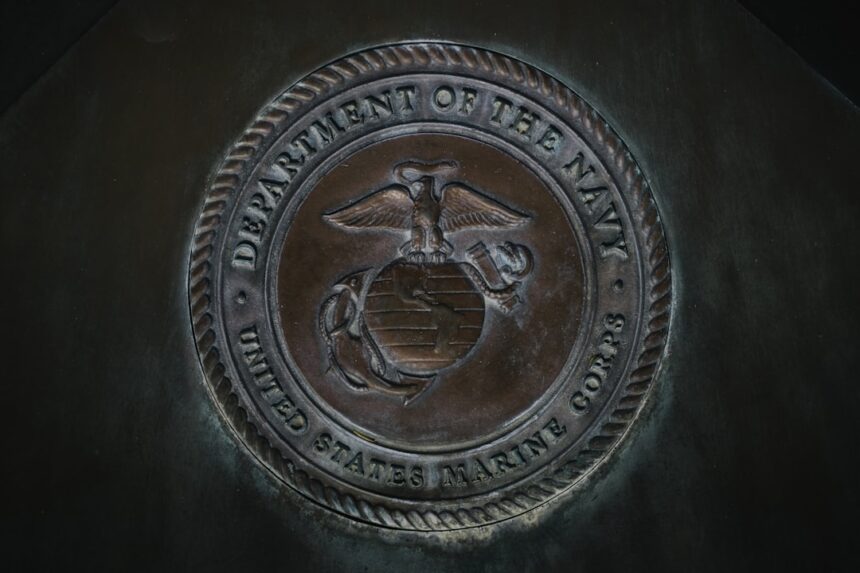The Pentagon script approval process is a complex and multifaceted system that governs how scripts related to the Department of Defense (DoD) are reviewed and approved. This process is essential for ensuring that any portrayal of military operations, personnel, or policies in media productions aligns with the values and security interests of the United States. The approval process is not merely a bureaucratic hurdle; it serves to protect sensitive information and maintain the integrity of the military’s public image.
Understanding this process is crucial for writers, producers, and directors who wish to incorporate military elements into their narratives. At its core, the Pentagon script approval process involves several layers of review, each designed to scrutinize the content for accuracy, security implications, and adherence to military protocols. The initial step typically involves submitting a script to the appropriate military branch or public affairs office.
From there, the script undergoes a thorough examination by various stakeholders, including legal advisors and public affairs officers, who assess the material for any potential issues. This rigorous review ensures that the final product not only meets artistic standards but also aligns with national security interests.
Key Takeaways
- Understanding the Pentagon Script Approval Process:
- Familiarize yourself with the Pentagon’s script approval process to ensure a smooth submission and review.
- Identifying Key Stakeholders and Decision Makers:
- Identify the key stakeholders and decision makers within the Pentagon who will be involved in the script approval process.
- Crafting a Compelling and Accurate Script:
- Create a script that is both compelling and accurate, ensuring that it aligns with the Pentagon’s requirements and guidelines.
- Submitting the Script for Review:
- Follow the proper channels and procedures for submitting the script for review, ensuring that it reaches the right individuals within the Pentagon.
- Addressing Feedback and Revisions:
- Be prepared to address feedback and revisions from Pentagon officials, and make necessary adjustments to the script as needed.
Identifying Key Stakeholders and Decision Makers
Identifying key stakeholders and decision-makers within the Pentagon is a critical step in navigating the script approval process.
At the forefront are public affairs officers who serve as liaisons between the military and external entities, including filmmakers.
In addition to public affairs officers, legal advisors play a pivotal role in the decision-making process. They ensure that scripts comply with legal standards and do not inadvertently disclose classified information.
Furthermore, senior military officials may also be involved in the review process, particularly if the script touches on sensitive topics or high-profile military operations. Understanding who these stakeholders are and their respective roles can significantly enhance a creator’s ability to navigate the approval process effectively.
Crafting a Compelling and Accurate Script

Crafting a compelling and accurate script is paramount when seeking Pentagon approval. A well-written script not only captivates audiences but also respects the realities of military life and operations. Writers must conduct thorough research to ensure that their portrayals of military personnel, equipment, and procedures are authentic.
This commitment to accuracy not only enhances the credibility of the project but also increases the likelihood of receiving approval from Pentagon officials. Moreover, a compelling narrative that resonates with both military and civilian audiences can serve as a bridge between the two worlds. By weaving in authentic experiences and perspectives from service members, writers can create stories that honor the sacrifices made by those in uniform while also engaging viewers on an emotional level.
This dual focus on accuracy and storytelling can significantly bolster a script’s chances of passing through the approval process smoothly.
Submitting the Script for Review
| Script Review Metrics | January | February | March |
|---|---|---|---|
| Number of Scripts Submitted | 25 | 30 | 28 |
| Average Review Time (in days) | 7 | 6 | 8 |
| Percentage of Scripts Approved | 80% | 85% | 75% |
Once a script has been crafted with care, the next step involves submitting it for review. This submission is not merely a formality; it marks the beginning of a critical evaluation phase where the script will be scrutinized for various factors, including security concerns and adherence to military protocols. Creators must ensure that their submission is complete and follows any specific guidelines provided by the relevant military branch or public affairs office.
The submission process often requires accompanying documentation that outlines the project’s intent, target audience, and any specific requests for military support or resources. Providing this context can help reviewers understand the purpose of the script and its potential impact. Additionally, being transparent about any creative liberties taken can foster trust between creators and military officials, paving the way for a more collaborative review process.
Addressing Feedback and Revisions
Receiving feedback from Pentagon officials can be both enlightening and challenging for creators. The feedback may range from minor suggestions to significant revisions that could alter key elements of the script. It is essential for writers to approach this feedback with an open mind, recognizing that it is intended to enhance both the accuracy of the portrayal and the overall quality of the project.
Engaging constructively with feedback demonstrates professionalism and a commitment to producing a respectful representation of military life. Revisions may require additional research or consultation with military experts to ensure that changes align with established protocols and realities. This iterative process can be time-consuming but ultimately leads to a more polished final product.
By embracing feedback as an opportunity for growth rather than criticism, creators can strengthen their scripts while fostering positive relationships with Pentagon officials.
Navigating the Chain of Command

Navigating the chain of command within the Pentagon is crucial for ensuring that scripts receive timely reviews and approvals. The military operates within a structured hierarchy, and understanding this chain can help creators identify whom to approach at various stages of the approval process. Each branch of the military has its own protocols, so familiarity with these structures can streamline communication and facilitate smoother interactions.
Effective navigation of this chain often involves building relationships with key personnel at different levels. Establishing rapport with public affairs officers or other decision-makers can lead to more efficient reviews and approvals. Additionally, being respectful of their time and responsibilities can foster goodwill, making it more likely that they will advocate for a project within their respective offices.
Understanding the Importance of Security and Sensitivity
Security and sensitivity are paramount considerations in the Pentagon script approval process. The military operates under strict guidelines regarding what information can be publicly disclosed, particularly concerning operations, strategies, or personnel details that could compromise national security. Creators must be acutely aware of these sensitivities when crafting their scripts to avoid inadvertently crossing lines that could lead to disapproval or even legal repercussions.
Moreover, understanding the emotional weight of certain topics—such as combat experiences or personal sacrifices—can guide creators in portraying these elements with respect and authenticity. Sensitivity to these issues not only enhances the quality of storytelling but also demonstrates an understanding of the complexities involved in military life. This awareness can significantly influence how Pentagon officials perceive a project during the approval process.
Communicating Effectively with Pentagon Officials
Effective communication with Pentagon officials is essential throughout the script approval process. Clear and concise communication helps ensure that all parties are on the same page regarding expectations, timelines, and any specific requirements for revisions or additional information. Creators should strive to articulate their vision while remaining receptive to feedback and suggestions from military representatives.
Additionally, maintaining professionalism in all interactions is crucial. This includes being punctual in responding to inquiries, providing requested materials promptly, and demonstrating respect for the officials’ expertise and time constraints. By fostering open lines of communication, creators can build trust with Pentagon officials, which may facilitate smoother interactions throughout the approval process.
Following Protocol and Procedures
Adhering to established protocols and procedures is vital when navigating the Pentagon script approval process. Each branch of the military has specific guidelines regarding submissions, reviews, and approvals that must be followed meticulously. Familiarizing oneself with these protocols can prevent unnecessary delays or complications during the review process.
Moreover, understanding deadlines for submissions and revisions is crucial for keeping projects on track. Creators should be proactive in managing their timelines while remaining flexible enough to accommodate any unexpected changes or requests from military officials. By demonstrating an understanding of these protocols, creators can enhance their credibility and increase their chances of receiving timely approvals.
Leveraging Relationships and Networks
Leveraging relationships and networks within the military community can provide significant advantages during the script approval process. Building connections with individuals who have experience in public affairs or military operations can offer valuable insights into navigating bureaucratic challenges effectively. These relationships can also serve as informal channels for obtaining feedback or guidance on specific aspects of a script.
Networking within industry circles that intersect with military interests—such as veteran organizations or defense contractors—can also yield beneficial connections. Engaging with these communities can provide creators with access to resources, expertise, and perspectives that enhance their understanding of military life and operations. Ultimately, these relationships can facilitate smoother interactions with Pentagon officials during the approval process.
Tips for Successfully Navigating the Pentagon Script Approval Process
Successfully navigating the Pentagon script approval process requires a combination of preparation, communication skills, and an understanding of military culture. One key tip is to conduct thorough research before submitting a script; this includes familiarizing oneself with relevant military protocols, terminology, and operational realities. Such preparation not only enhances accuracy but also demonstrates respect for military traditions.
Another important tip is to remain patient throughout the review process. The Pentagon’s bureaucratic nature means that approvals may take time; understanding this reality can help creators manage their expectations effectively. Additionally, maintaining open lines of communication with public affairs officers can provide updates on progress while fostering positive relationships.
In conclusion, navigating the Pentagon script approval process is a multifaceted endeavor that requires careful attention to detail, effective communication, and an understanding of military culture. By following established protocols, engaging constructively with feedback, and leveraging relationships within the military community, creators can enhance their chances of successfully obtaining approval for their projects while producing compelling narratives that honor those who serve in uniform.
The Pentagon’s script approval process has long been a topic of interest and debate, particularly in how it influences the portrayal of the military in films and media. An insightful article that delves into this subject can be found on In The War Room’s website. This piece explores the intricate relationship between Hollywood and the Department of Defense, shedding light on the criteria and considerations involved in the approval process. For a deeper understanding of how these dynamics play out, you can read the full article by visiting In The War Room.
CHECK THIS OUT! 📽️🎞️ Hollywood’s Secret War: How the CIA Rewrote Movies
FAQs
What is the Pentagon script approval process?
The Pentagon script approval process refers to the procedure through which the Department of Defense reviews and approves scripts for films, TV shows, and other media projects that involve the military or defense-related themes.
Why does the Pentagon review and approve scripts?
The Pentagon reviews and approves scripts to ensure that the portrayal of the military and defense-related themes in media projects is accurate, realistic, and aligns with the Department of Defense’s values and objectives.
How does the Pentagon script approval process work?
The Pentagon script approval process typically involves filmmakers or producers submitting their scripts to the Department of Defense for review. The scripts are then evaluated by military officials to assess their accuracy and suitability for collaboration with the Department of Defense.
What are the criteria for script approval by the Pentagon?
The Pentagon evaluates scripts based on their accuracy in depicting military operations, equipment, and personnel, as well as their alignment with the Department of Defense’s values and objectives. Scripts that meet these criteria are more likely to receive approval.
Is script approval by the Pentagon mandatory for all media projects involving the military?
Script approval by the Pentagon is not mandatory for all media projects involving the military. However, filmmakers and producers often seek collaboration with the Department of Defense to gain access to military resources, locations, and equipment, which may require script approval.




